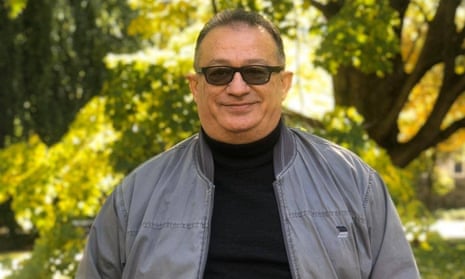An Iraqi man who lost his wife, daughter, brother and nephew in an airstrike after US intelligence misidentified his home as an Islamic state headquarters, is believed to be the first civilian awarded compensation by coalition forces.
Basim Razzo, 61, who cannot walk because of his injuries, has been made a “voluntary offer” of nearly €1m by the Dutch government, whose F16 jets were responsible for the attack near the city of Mosul five years ago.
The Dutch defence minister, Ank Bijleveld, said in a letter to the country’s parliament that the government was not admitting liability over the deaths but that “in view of the special aspects and circumstances of this concrete, specific case and the debate”, it had been decided “for humanitarian reasons, to proceed to the voluntary offer of compensation”.
Razzo’s house, and his brother’s home next door, were destroyed in the early hours of 20 September 2015 during a precision strike based on faulty intelligence that the two buildings were an Isis bomb-making facility. Anti-Isis coalition forces posted a recording of the attack on YouTube.
Razzo’s wife, Mayada, sleeping next to him, was killed instantly, along with his 21-year-old daughter, Tuqa, his brother Mohannad, and his 18-year-old nephew, Najib. Razzo’s sister-in-law, Azza, survived after being thrown through her bedroom window by the blast.
Compensation claims were made possible only after a pilot involved in the air raid agreed to be interviewed anonymously by Dutch media outlets last year.
Responding to the Dutch government’s decision, Razzo said he wished to meet the pilot responsible for the strike “so we can make peace”.
He said: “I had actually lost all hope. I was very surprised and emotional when my lawyer called. The case can … finally be closed. I am very pleased with how quickly the Netherlands resolved this. In the United States they send me from pillar to post and eventually it led to nothing. Now we can live in a house of our own again, I can take care of my family and I still need to undergo an operation for my hip in Turkey. After that we will see how it goes.”
Razzo’s lawyer in the Netherlands, Liesbeth Zegveld, said the offer of compensation had come after a meeting at the Dutch ministry of defence in June, which her client had participated in through Skype.
Zegveld said: “On that occasion the ministry offered its apologies to Razzo. It was all a mistake. I then detailed the damages in a letter. The minister subsequently offered roughly the amount demanded. In the shadowy air war against IS, in which civilian casualties are generally not reported or denied, this is a unique case, for the Netherlands, but also for the coalition and other countries participating in the coalition agains IS.”
Details of the compensation were not made public but the sum is understood to be nearly €1m (about £909,000).
Razzo’s case was cited in a New York Times investigation suggesting that of the coalition strikes it could identify, one in five had resulted in civilian deaths because of proximity to a legitimate target, or because of flawed or outdated intelligence.
Zegveld told the Guardian: “When I opened the letter containing the response of the ministry to our claim, I first could not believe what I read. I represent war victims for over 20 years now. Both the amount and the fact that no court intervention was needed is unique. I called Basim, he was driving, he had to stop. He had tears in his eyes.”
